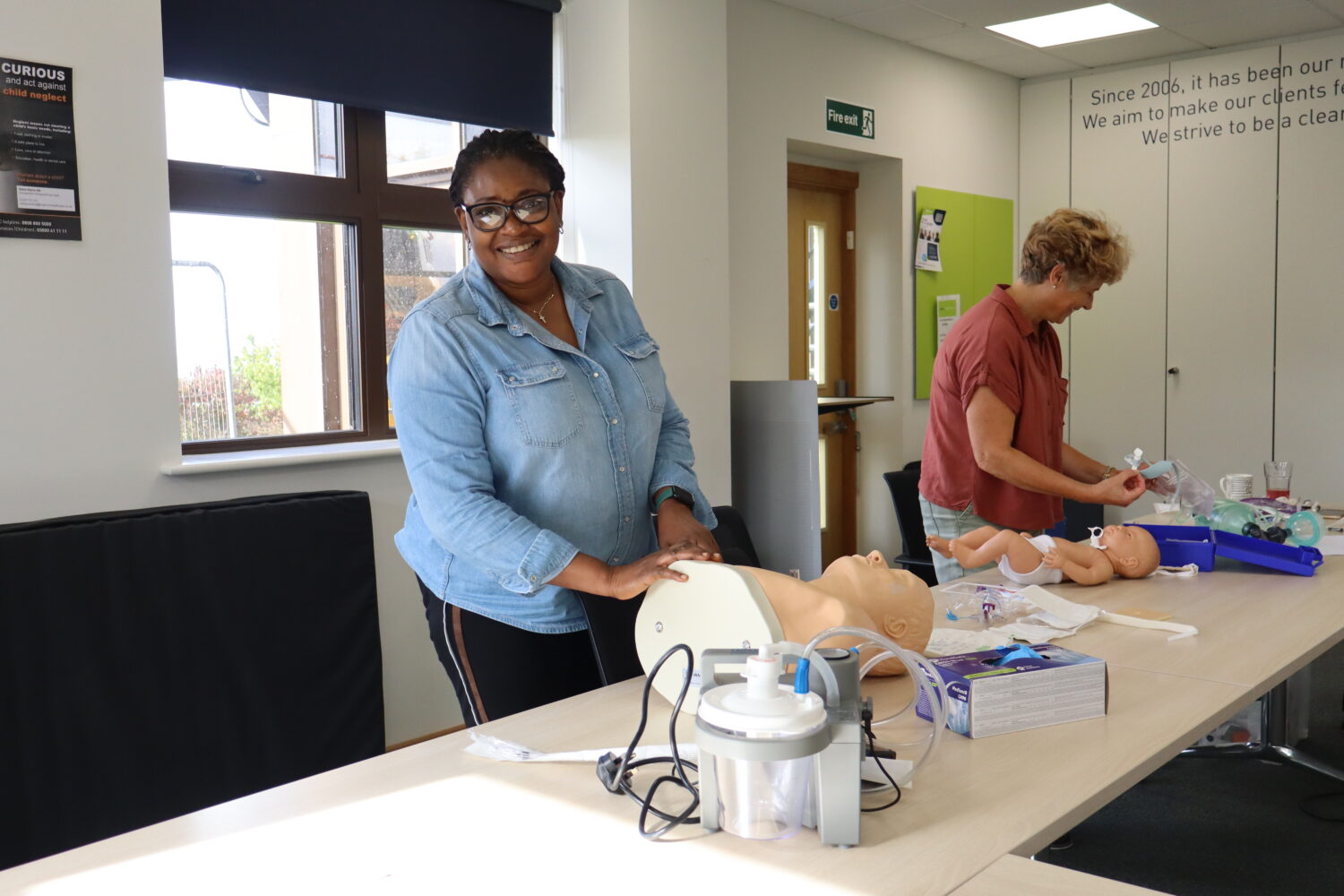Reserve your free spot at Superior Healthcare’s CPD-accredited Free Tracheostomy Training for Registered Nurses on Monday, 30th June, in Whitstable, Kent.


This one-day free Adult and Paediatric Tracheostomy Awareness Training is designed for registered nurses with limited tracheostomy experience or those looking to refresh their clinical skills and knowledge, aligned with current best practice standards.
Nurses will learn about caring for people with tracheostomies and gain practical experience through scenarios that replicate real life.
All participants will receive a CPD-accredited certificate via email upon completing the training, which can be used toward nurse revalidation.
Build confidence in tracheostomy care while improving your clinical knowledge and skills. The training is mapped to the National Tracheostomy Safety Project (UK) guidelines.
Training overview:
Understand the anatomy and physiology of the respiratory system and its role in breathing and gas exchange.
This section covers how we inhale and exhale, filter and warm inspired air, perceive smell, and produce sound.
Key areas of focus include the laryngopharynx, trachea, esophagus, and alveoli.
Participants will learn the key indications for a tracheostomy.
These include maintaining a patent airway, removing tracheobronchial secretions, providing long-term positive pressure ventilation, improving patient comfort, and reducing the work of breathing.
Gain insight into adult and paediatric tracheostomy types, including cuffed, uncuffed, and fenestrated tubes.
We will examine the components of these tubes and discuss patient indications for each type.
Additionally, we will compare the management of Shiley tubes and Bivona tubes.
Learn correct methods for performing tracheal and oral suction to prevent airway obstruction.
Participants will identify when suction is needed and understand the appropriate equipment, suction pressures, and infection control procedures.
We will also discuss the risks associated with suctioning.
This section will train participants on the proper technique for changing tracheostomy tapes and ties to ensure airway security and prevent complications.
We will cover appropriate stoma cleaning methods, dressing changes, troubleshooting, monitoring skin integrity, and addressing potential concerns during the process.
Gain hands-on experience with various humidification methods, including the Buchanan bib, Swedish nose, heat and moisture exchanger (HME), and Fischer & Paykel heated humidifier.
Practical demonstrations will enhance your understanding of the equipment.
Focus on the safe use of speaking and swallow valves, enabling effective communication for clients with tracheostomies.
Participants will explore the psychological impact of being unable to vocalise, especially for those with cuffed tubes.
The training will also cover safety considerations, including when to remove speaking valves for clients experiencing increased work of breathing.
Participants will learn the importance of routine tracheostomy tube changes for client safety and complication prevention.
Training will cover proper techniques, maintaining a sterile environment, assessing the stoma site, and recognising when to seek clinical advice.
Key points include effective communication between two staff members, proper client positioning, and having emergency equipment ready.
Learn essential protocols for managing tracheostomy emergencies such as dislodgement, obstruction, and decannulation.
Participants will train to assess airway patency and identify signs of respiratory distress, including stridor or hypoxia.
You will become proficient in the emergency algorithm for both adults and paediatrics and understand the importance of maintaining a complete tracheostomy emergency box.
Additionally, participants will practice using a bag-valve-mask (BVM) for ventilation and basic life support algorithms.
Engage in simulated practice stations covering tracheostomy and oral suction, tape and tie changes, routine and emergency tube changes, cuffed tube inflation (including use of a manometer), and inner tube or cannula changes.
Limited places are available for Registered Nurses in Kent to join.
Register your interest today, and our team will contact you to secure your spot.